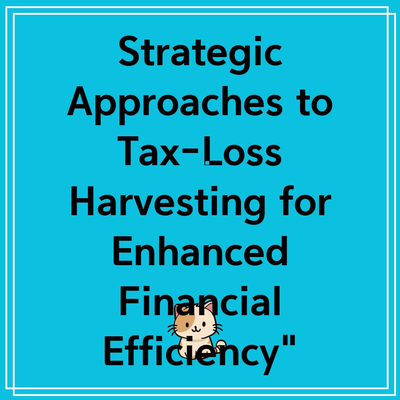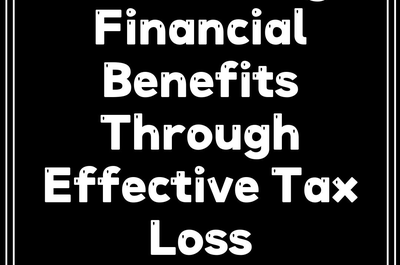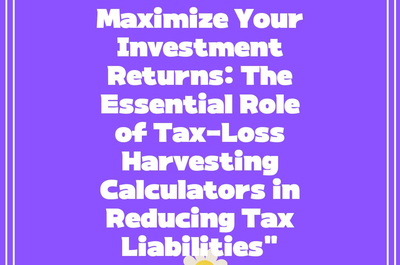
Maximizing Tax Losses: Smart Strategies for Tax Savings
The world of taxation can be complex, yet understanding how to effectively utilize tax losses can be a game changer for individuals and businesses alike. In recent times, with the economic climate evolving and financial uncertainties looming, it has become increasingly vital for taxpayers to harness every available strategy to reduce their tax liabilities. Tax-loss harvesting, a method where you sell investments at a loss to offset capital gains, is gaining significant attention. This article will explore effective ways to leverage tax losses and implement strategies that can lead to substantial tax savings.
Understanding Tax-Loss Harvesting
Tax-loss harvesting is a strategy employed to minimize taxes on capital gains by selling securities at a loss. The losses can offset gains, thereby reducing the overall tax burden. For example, if an investor has realized a gain of
Leveraging Losses for Maximum Benefit
Successful tax-loss harvesting requires attention to several key details. First, taxpayers should be aware of the
Another critical aspect of tax-loss harvesting is timing. Market downturns or tax year-end deadlines often present opportunities to crystallize losses. While this might be counterintuitive, selling losing investments can offer a path to greater long-term gains by allowing a fresh start. It’s essential to evaluate asset performance regularly and determine when to cut losses, particularly in volatile markets where conditions can shift rapidly.
Incorporating Charitable Donations
Donating appreciated securities to charitable organizations can yield dual benefits: avoiding capital gains taxes and receiving a tax deduction based on the fair market value of the securities. This strategy provides a win-win situation where the donor is fulfilling philanthropic goals while simultaneously maximizing tax benefits. As a result, charitable contributions offer a method to both support causes and reduce taxable income effectively.
Consulting a Tax Professional
This complex landscape of tax deductions, credits, and laws can be confusing. Engaging with a qualified tax professional is crucial, especially as financial situations become more intricate. A tax advisor can help develop tailored strategies that consider personal circumstances and investment goals. Whether it’s navigating the nuances of differing asset types or optimizing the use of losses against gains, expert guidance is instrumental in maximizing tax savings.
Plan for the Future
Maximizing tax losses is not solely focused on immediate outcomes. Investors should think long-term and consider the overall investment strategy in light of their goals. Adjusting investment portfolios periodically, considering the implications of potential losses, and preemptively planning for tax consequences of investment decisions can set the stage for more favorable tax positions in the future.
Conclusion
Utilizing tax losses is essential for anyone looking to minimize their tax liabilities effectively. Tax-loss harvesting can significantly enhance your financial position when executed correctly. By understanding the rules, planning for the future, leveraging charitable contributions, and seeking guidance from tax professionals, both individuals and businesses can maximize their tax efficiency. With ongoing economic uncertainties, the time to act is now—make sure to


